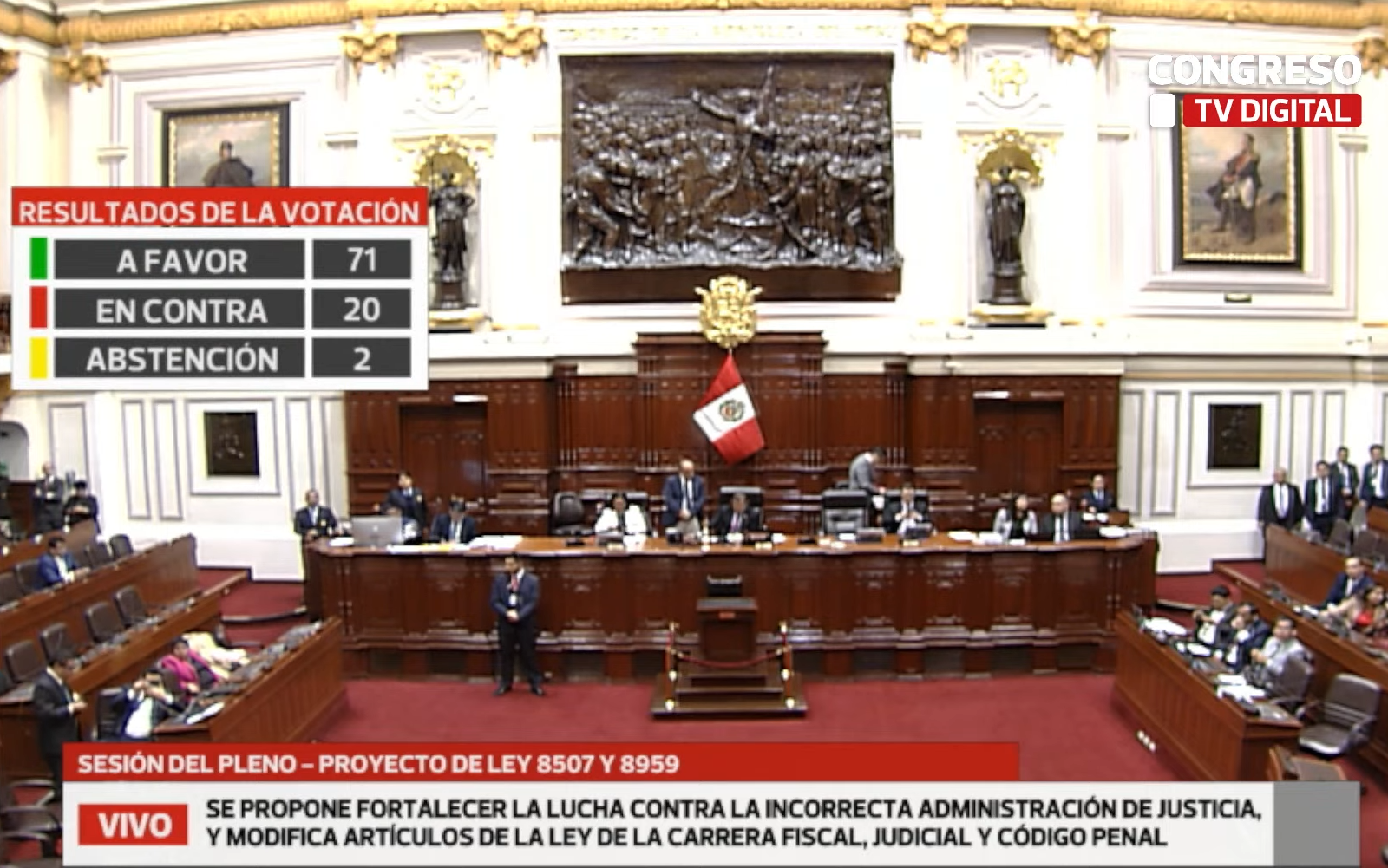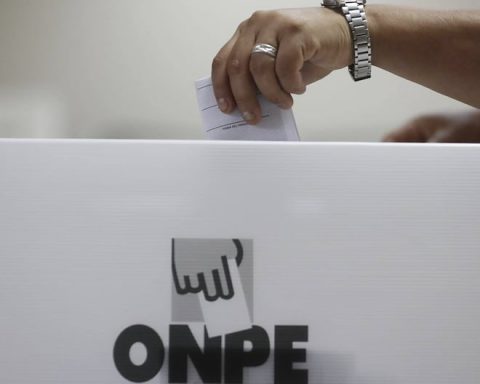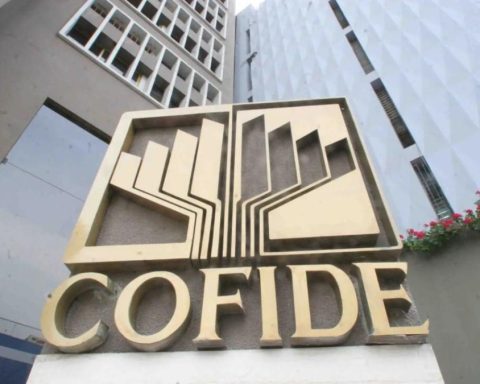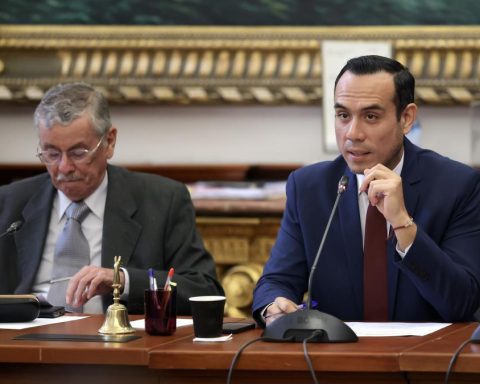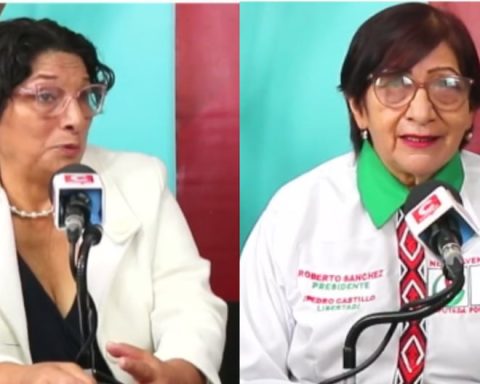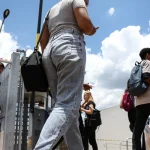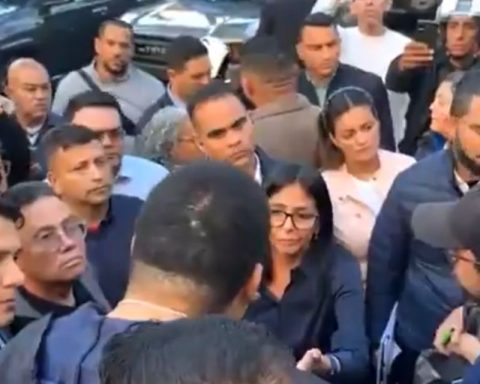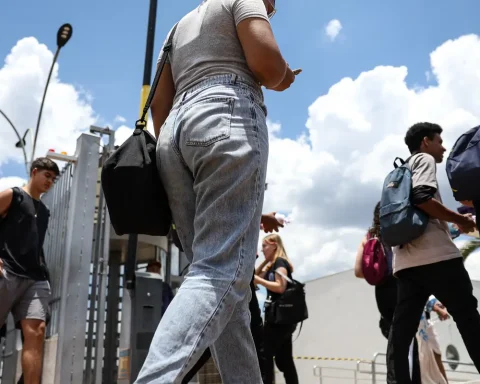With 84 votes in favor20 against and 2 abstentions, the Plenary of Congress approved in the first vote the bills 8507 and 8959 that establish disciplinary and criminal sanctions for judges that dictate preliminary arrests, preventive detention or convictions that are revoked by the higher court. In addition, prosecutors who request such measures could also be sanctioned.
During the session, it was voted to exempt these proposals from a second vote. However, sufficient votes were not obtained. The legislative proposals 08507/2024 and 08959/2024 They were presented by the Renovación Popular and Avanza País benches.respectively. And the Board of Spokespersons, in the session held on October 10, agreed—for both projects—to exempt the ruling from the Justice Commission.
Hours before, through a statement, The Superior Court of Justice of Lima asked Congress respect the division of powers and judicial independence within the framework of the vote on both bills that had been put on the agenda. In the document, they warned that Congress was going to debate projects that modify the Judicial Career Law, Fiscal Career Law and the Penal Code“establishing disciplinary and criminal sanctions for judges who dictate preliminary detention, preventive detention or conviction and were revoked by the higher court, with the intention of similarly sanctioning prosecutors who have requested such measures.”
During the voting on legislative proposals 08507/2024 and 08959/2024, in an interview for Canal N, the president of the First Constitutional Chamber of Lima, Oswaldo Ordóñez, spoke out against both projects. “With this law the jurisdictional function and the fiscal function are being criminalized by generating differences in criteria of opinion as a criminal act.” In addition, he pointed out that infractions have been created that are classifying them as serious offenses and that could trigger the dismissal of a judge or prosecutor.
“They want to criminalize when a judge dictates a preliminary, preventive detention, and that resolution is revoked. In that sense, there would be the possibility that a judge could be criminally prosecuted,” added Ordóñez Alcántara, emphasizing that this type of law affects the principle of separation of powers, against the independence of the Judiciary, the Public Ministry and the independence of judges.
They rule on sanctions against judges and prosecutors
For his part, Isaac Mita, president of the Justice Commission, justified the proposal by pointing out that it seeks to establish concrete measures and clear guidelines to guide the appropriate use of discretion in the administration of justice. And improve the efficiency of the Public Ministry, the Judiciary and the National Police in the fight against organized crime. Hence Articles 47 of the Fiscal Career Law would be modified48 of the Judicial Career Law and 428 of the Penal Code.
While congresswoman Sigrid Bazán spoke out through her social networks to show her rejection of the first approval of the bills. “After 8 hours—and having sent everything to the freezer—Congress only approves a clearly unconstitutional initiative that takes away power and autonomy from the role of judges and prosecutors,” reads the publication made through ‘X’.
Congress will not repeal Law 32108
After an extensive debate, the president of Congress, Eduardo Salhuana, announced at 10:59 pm on Friday, October 11, that the head of the Justice Commission, Isaac Mita, would present a new replacement text to the plenary session. This text proposes modifications to the Organized Crime Law and eliminates the term “urban terrorism”, which had generated controversy. In its place, the figure of the “crime of systematic criminality” is introduced, opening the debate again.
The replacement text, which removes the mention of “urban terrorism”, follows the same line as the project presented on October 3, but adds more adjustments to the Penal Code. However, this new proposal comes at a time of tension, since the transport unions have warned of starting an indefinite strike if the Organized Crime law and the replacement text of “urban terrorism” are not archived.
